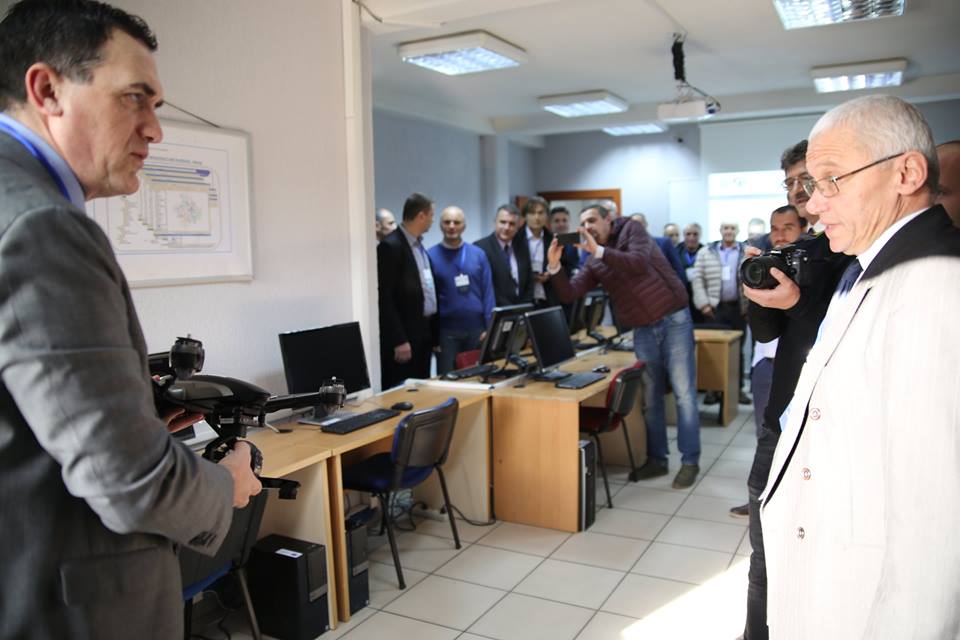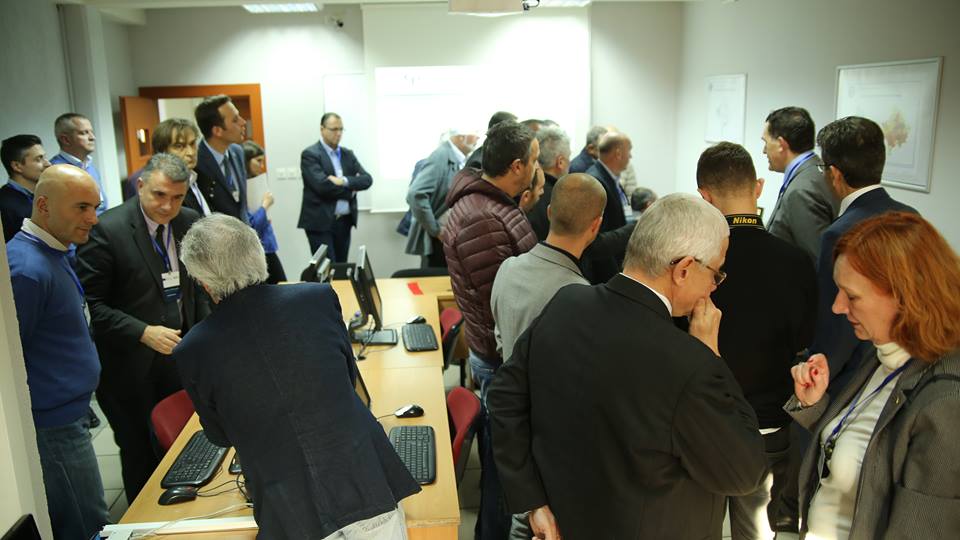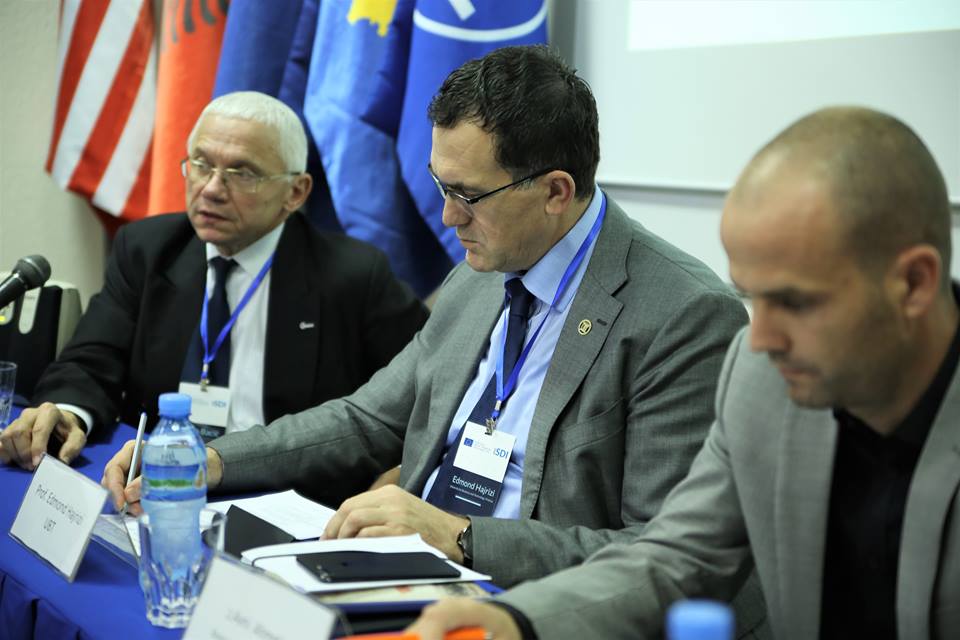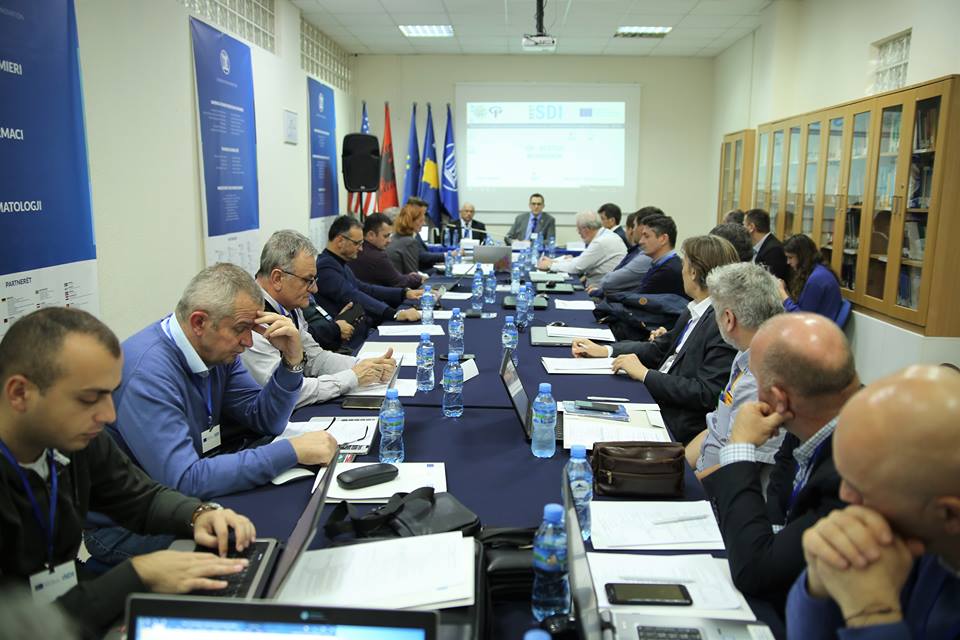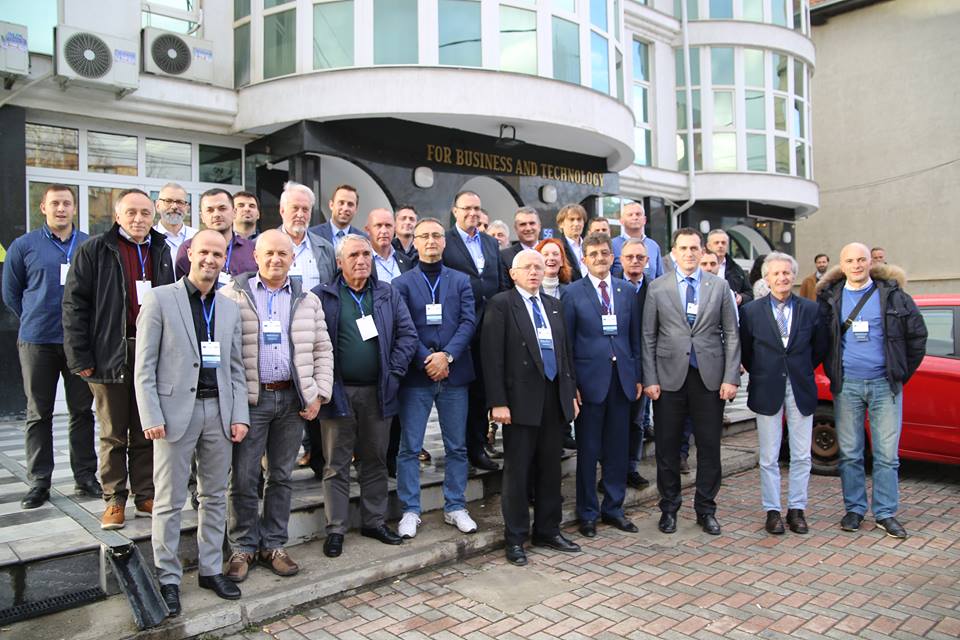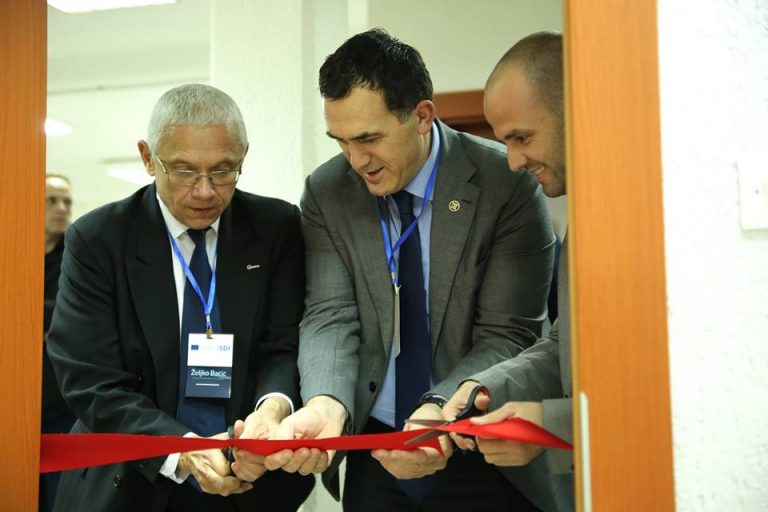
UBT brings up together the partners who have implemented the “BESTSDI” project- They have discussed about achievements and objectives
27/11/2018UBT has hosted the ninth meeting of partners who have implemented the “BESTSDI” project in the framework of Erasmus+ program.
The workshop joined up together representatives from all over the Europe as well as Kosovo institutional leaders, who discussed about the achievements of the project and the further steps which ought to be taken, aiming to successfully carry out the project.
The opening session of this workshop started with the speech of prof.dr.Edmond Hajrizi who provided some chronological information about the foundation and the wide range of achievements during 17 years, as well as about the contribution that the institution has given in the framework of “BESTSDI” project. “This is the reason why this is an important project for Kosovo as well as for UBT and is continuously creating a platform which is primarily based on an interdisciplinary approach”, emphasized Hajrizi.
Hajrizi underlined that UBT is giving a great contribution in this aspect, and as a matter of a fact it has implemented a wide range of study programs. The curricula of this programs aims at developing and improving of the infrastructure and spatial data.
The coordinator of the “BESTSDI”, Zeljko Basic made an overall review about the work done from 16 partners, in the project he coordinates.
“The main focus of this project is implementing into practice all the infrastructure of spatial data. Undoubtedly, these are the key components of the digital revolution”, explained he.
Basic mentioned that during the previous years he had launched a unique project which wasn’t still implemented by the vast majority of education institutions in the region and never had such a system of data preservation.
“I’m delighted from the fact that UBT is among the implementing partners. UBT hasn’t still found the easiest way to develop found an institution. On the contrary, it has chosen the STEM fields that represent a concerning issue in itself, when it comes to gathering students. Indeed UBT has achieved its underlying goal”, said he.
The head of the Cadastral Agency of Kosovo, Avni Ahmeti has revealed the hard work that the institution is carrying out to improve the level of geospatial data in Kosovo, as well as a coordinator and persons responsible for the infrastructure and spatial planning (SDI), in Kosovo.
“In the framework of this project the Kosovo Cadastral Agency has realized numerous activities, involving the portal of infrastructure and spatial data, owing to the fact that its main objective is to focus on processes concerning a rapid distribution of spatial data in other institutions”, claimed he. Moreover, he has great expectations in continuing the further collaboration to attain other achievements in this field.
We have already created a multifaceted strategy for NSDI (National Spatial Data Infrastructure) and have identified the institutions which produce and utilize geospatial information and we are in a consistent contact with them. In addition we have signed collaboration memorandums regarding the process of data sharing”.
The local coordinator of this project at UBT Blerton Abazi gave a presentation of this workshop. In the framework of this project he pointed out the achievements, the future ambitions for the future and the significance of this project in developing SDI, having UBT as a partner in this project.
“UBT aims to review the curriculum and the module and the principles of SDI in work, including the information systems, the field concerned with building etc. The main aim is establishing the master study programs in this field. “Apart from that, UBT is planning to hold courses regarding the field of gathering geospatial data”, underscored Abazi.
On behalf of this workshop, UBT has inaugurated the “SDI” lab which is highly contributing to implement the project in practice. The workshop concerned with the “BESTSDI” project is going to continue even the upcoming days.
The “BESTSDI” project aims to adapt the actual curriculum and creation of other curriculums regarding the infrastructure. Whereas, part of this project will be also partners from European Union.
